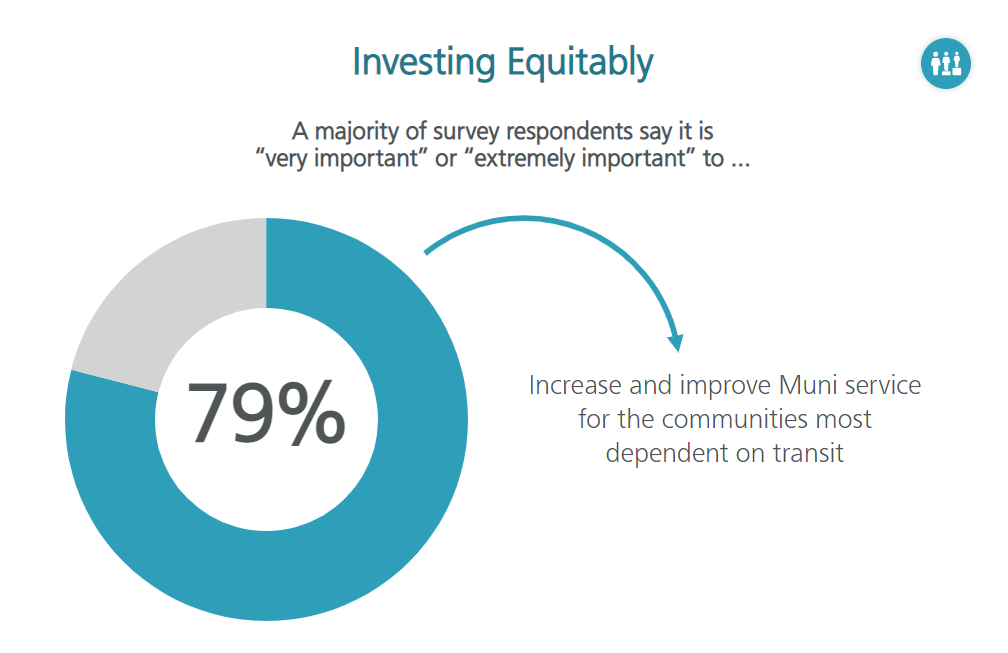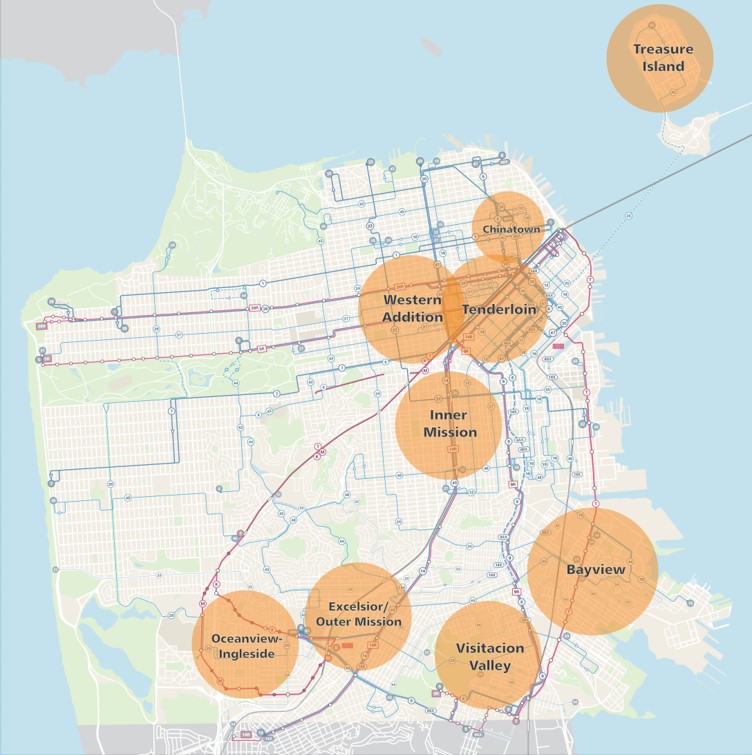Investing Equitably

How to Help Our Most Vulnerable
Public transportation is a vital part of our community and essential to making San Francisco an equitable and just city. Seniors, people with disabilities, people of color, and low-income San Franciscans have the fewest transportation options and rely on Muni. An affordable, reliable, and safe public transit system is a critical part of a thriving and equitable community, but with half of the High Injury Network located in communities of concern, more focus is needed to improve transit and make our roadways safer.
The SFMTA is committed to operating an equitable transportation system that contributes to the fair treatment, access, opportunity, and advancement of all people. The agency will continue to look for effective strategies to understand communities’ priorities and ensure the full participation of groups that have experienced systemic oppression.
Where to Invest?
The Muni Service Equity Strategy focuses SFMTA resources and investments on improving transit performance in nine San Francisco neighborhoods that were selected based on high percentages of households with low incomes and people of color, low private vehicle ownership and on routes heavily used by seniors and people with disabilities.
Over the course of the pandemic, equity neighborhoods overall performed better than more affluent areas in terms of access to jobs via transit. This was the result of deliberate SFMTA planning work to ensure that residents living in equity areas have consistent and improved access to jobs and other critical resources even with significant constraints due to the pandemic. We recognize that there are still more improvements to be made to increase job access via Muni from service equity neighborhoods. Additional service changes started on August 14, which further expand access to essential jobs.
Improvements for street safety also focus on communities of concern identified in the Muni Service Equity Strategy as well as the High Injury Network. Improvements must prioritize the most vulnerable and reflect community context:
- Vulnerable populations – Older adults, homeless or marginally housed residents, people of color, people with disabilities, non-English speaking people, immigrants and youths
- Geographic inequities – San Francisco's High Injury Network is concentrated in low-income communities and communities of color
- Vulnerable road users – Pedestrians, cyclists and motorcyclists
- Bias and unintended consequences – Vision Zero should not exacerbate existing inequities or result in unintended consequences

